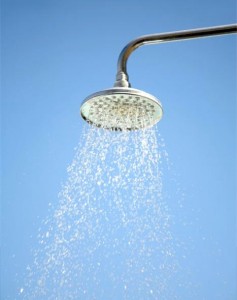The bathroom is the room in the home where water is used the most, but it’s also the room where the most water can be saved. With only 1% of the earth’s water considered safe for human consumption, it’s vital that you conserve as much water as you can. There are many ways to do this which work out to be extremely cost effective and really quite simple:
Tips for conserving water:
By making slight changes to your bathroom habits you can save an unlimited amount of water, good for both the environment and your own utility bills!
- Opt for showers instead of baths, a bath can use up to 80 litres of water; you could save 45 litres by having a shower instead which will use around 35 litres. A four-minute shower is really all you need for a good wash; any more is a waste of water.
- Power showers use double the amount of water as a standard shower does, you could also look at having a rain shower installed. This is an initial large outlay, which over time will pay for itself so can be seen as a major investment. Rain showers collect water when it rains, this is water that otherwise wouldn’t be put to any use, they then filter this and heat it to be ready for you. Many people even have these installed to the outside of the home!
- If you have a dripping tap, have it fixed immediately. A tap that is left to drip all day can waste enough water to fill an entire tub!
- When you’re brushing your teeth, turn the taps off – this will save up to 3.5 litres of water every time you brush.
- By using your sink plug when you wash your face you could save around 4 litres of water each time which would otherwise be simply coming out of the tap and straight down the drain.
- Upgrade your toilet to save around £75 per year on your water bill. Older toilets will use around 5 gallons of water with every flush, whereas modern toilets use less than 1.6 gallons.
The average family use around 400 gallons of water every single day, this is for everything from bathing, garden maintenance, washing and drinking. Yearly household water bills are costing us hundreds of pounds, but by making small and simple changes you can save a lot of money whilst also protecting the environment.

